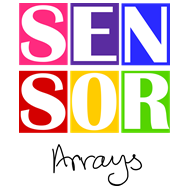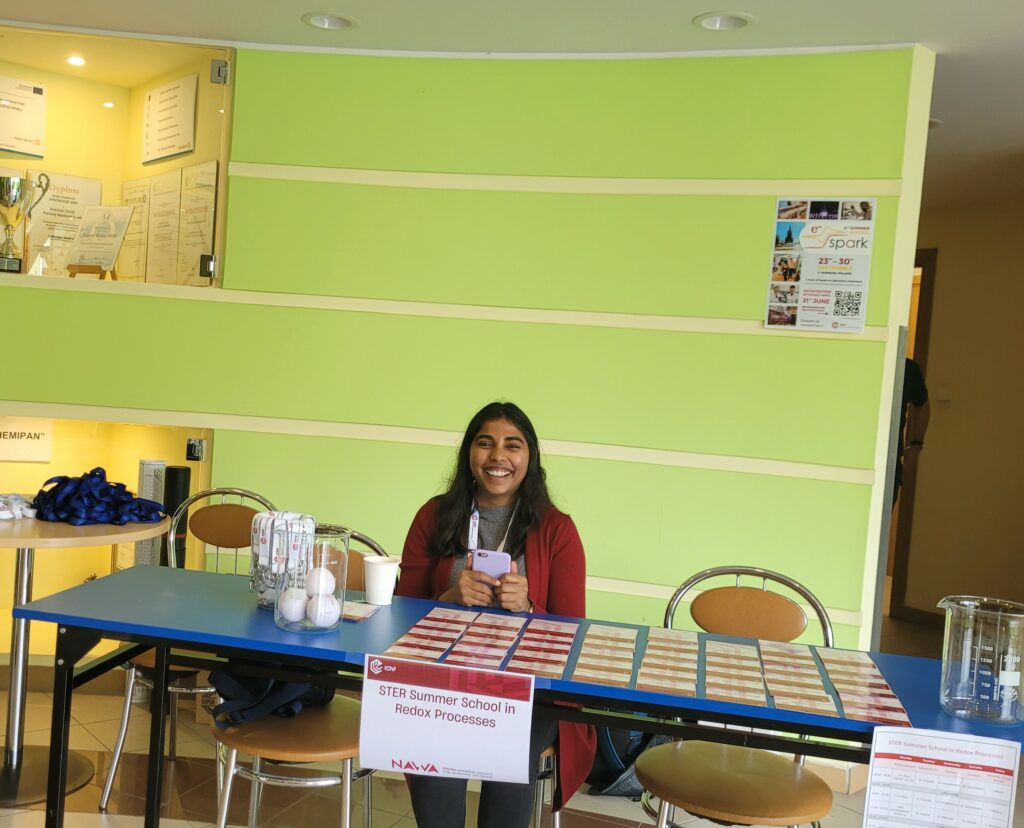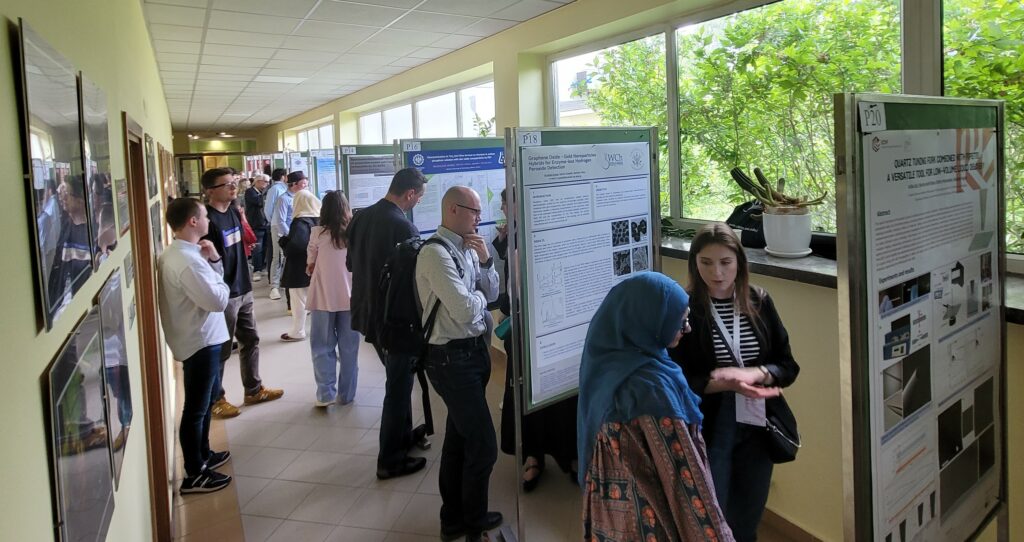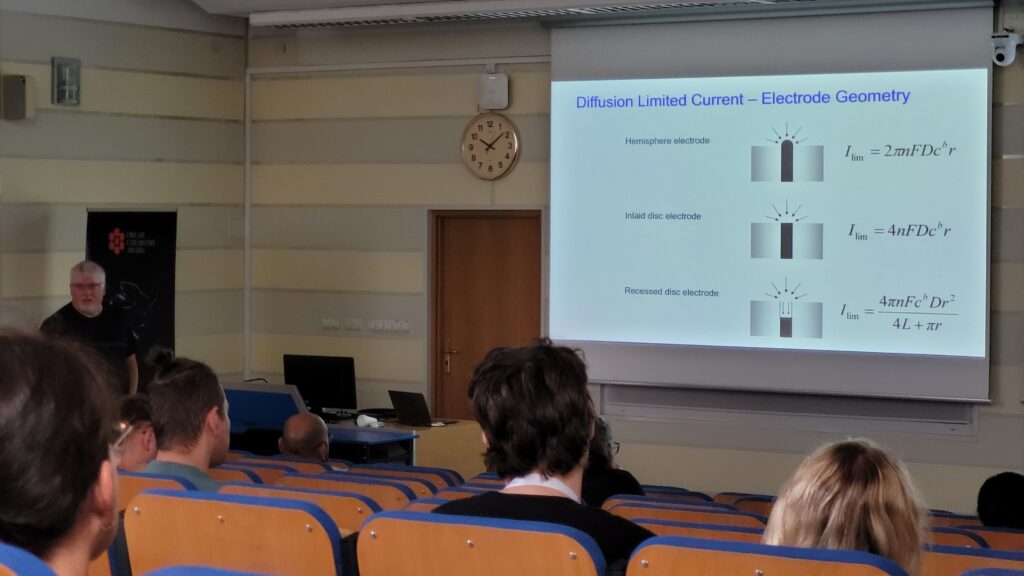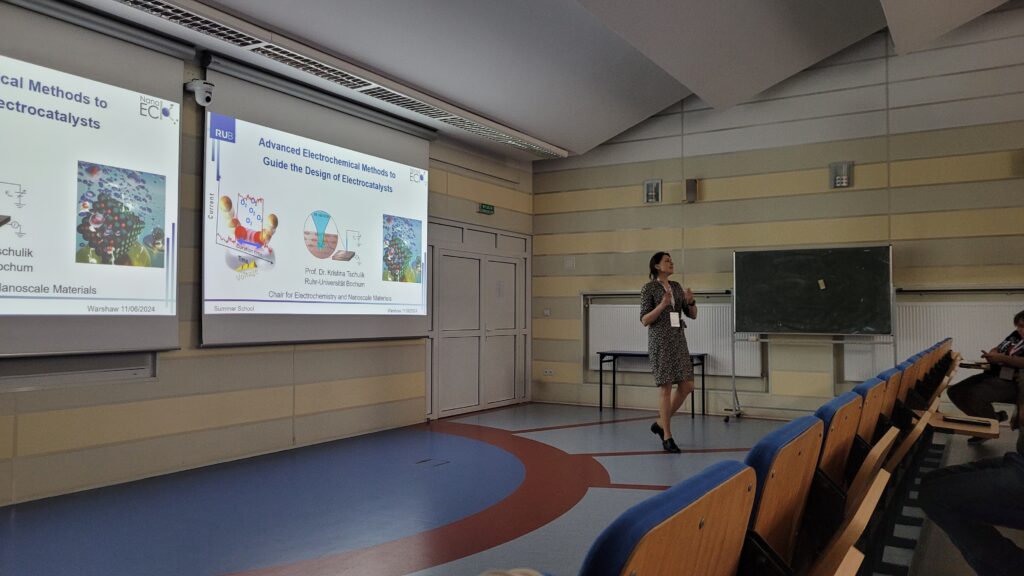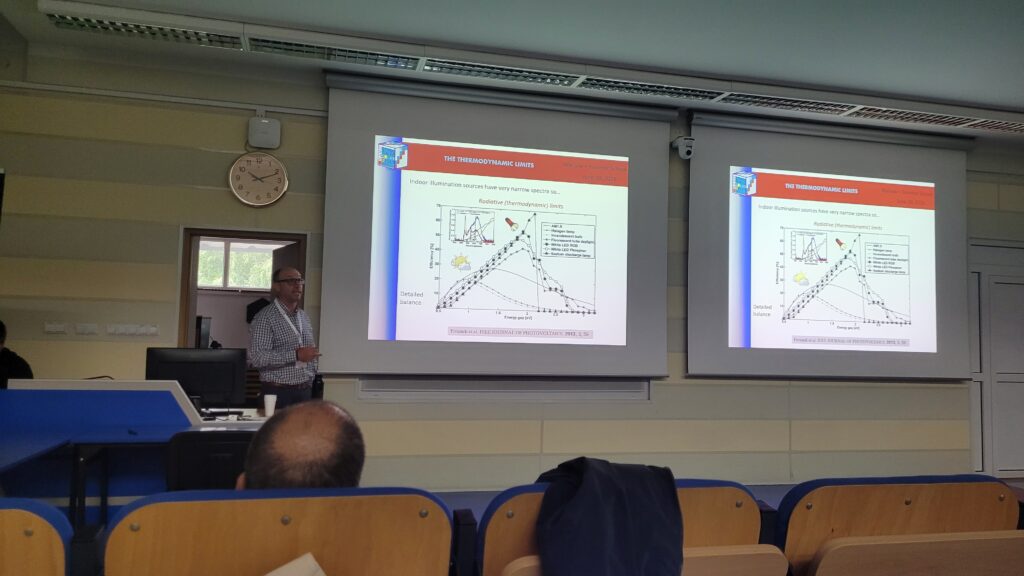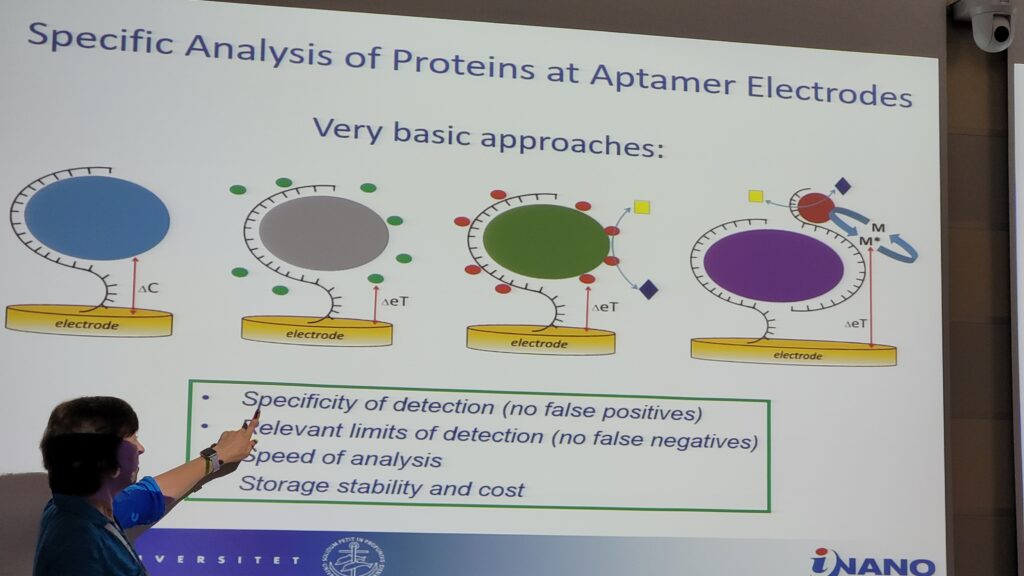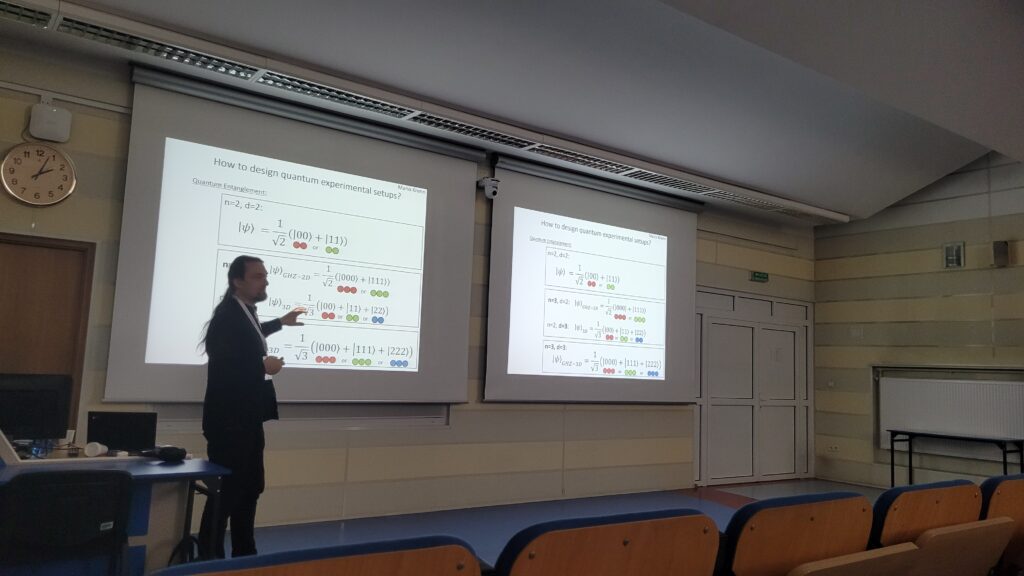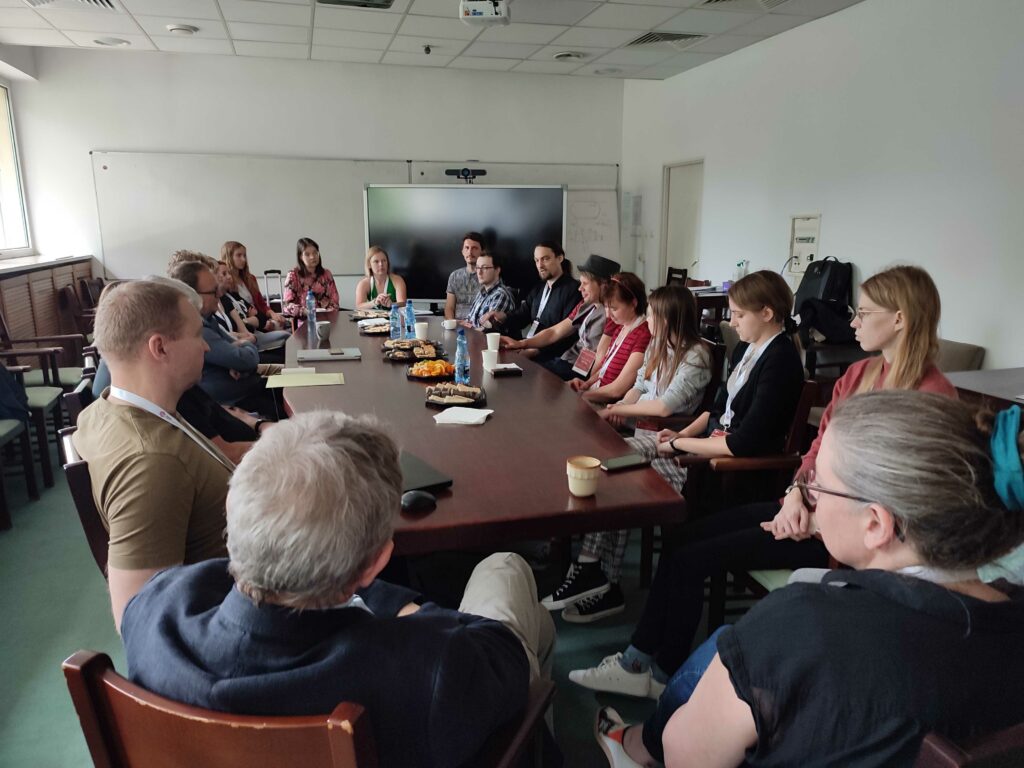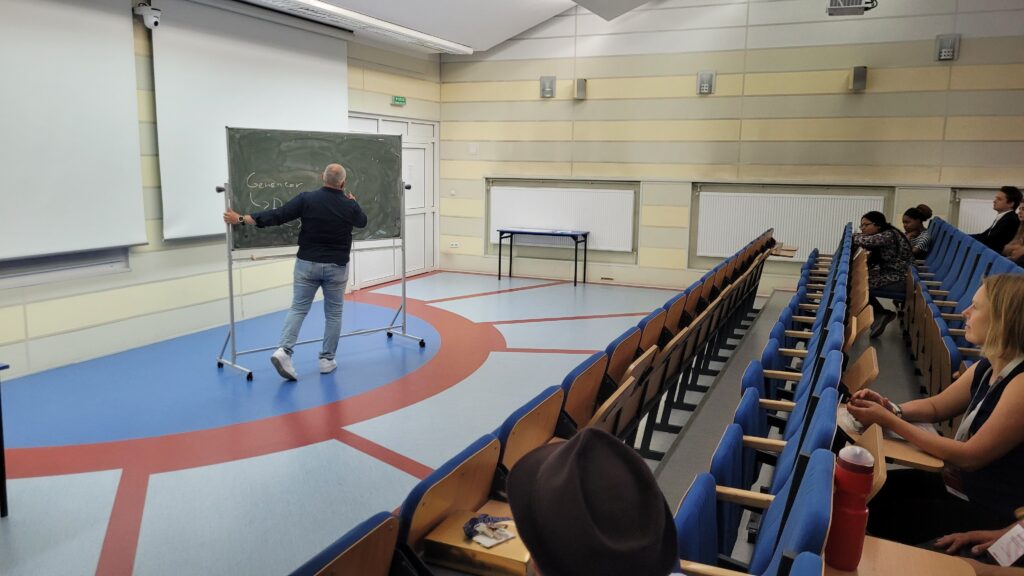From June 10 to 14, our institute had the privilege of hosting the STER Summer School in Redox Processes, funded by the NAWA program. Each day of the workshop was dedicated to a specific topic, beginning with a tutorial lecture by an internationally renowned expert, followed by presentations from students and local specialists. This event targeted PhD students and young researchers in physical chemistry, aiming to acquaint them with the latest developments in the field.
Our entire group actively participated in the Summer School. Karthika and Elżbieta even presented their research during the poster session. Emilia and Karthika played crucial roles both during and before the event as members of the organizing committee.
The Summer School featured a stellar lineup of lecturers who introduced various topics each day:
- Prof. Wolfgang Schuhmann (Ruhr-Universität Bochum, Germany) delved into the world of catalysis, showcasing his latest research on high-throughput catalyst screening. His lecture highlighted examples of good scientific practices, emphasizing the importance of proper method descriptions, data sharing, and making developments accessible to the broader scientific community.
- Prof. Kristina Tschulik (Ruhr-Universität Bochum, Germany) discussed nanoscale charge transfer, highlighting its differences from macroscopic processes and the potential for misinterpretation of results due to these differences.
- Prof. Juan Antonio Anta (Universidad Pablo de Olavide, Spain) introduced photochemistry, explaining the working principles of different solar cells and the correct methods for comparing them.
- Prof. Elena Ferapontova (Aarhus University, Denmark) presented various DNA and RNA sensor examples, demonstrating how this technology can aid in diagnosing cancer patients in clinical settings.
- Prof. Mario Krenn (Max Planck Institute for the Science of Light, Germany) showcased the use of AI as an artificial muse to design experimental setups and come up with new research ideas.
- Dr. Jan Bitenc (National Institute of Chemistry, Slovenia) provided a historical overview of battery development, discussing key performance metrics and alternative technologies that could replace lithium-ion batteries.
It is difficult to single out all worth noting lectures as all the invited speakers were outstanding. They openly shared the significance of their fields, the opportunities they present, common mistakes, and the seminal works that led to breakthroughs. Beyond the lectures, students engaged in discussions with the speakers during a debate on the future of physical chemistry and attended a session led by Dr. Stepan Shipovskov from Eastman Chemical Company, which provided insights into an industrial R&D career.
It was truly an amazing week!
Findings presented by Elżbieta are from the NCBR LIDER/38/0138/L-9/17/NCBR/2018 project.
